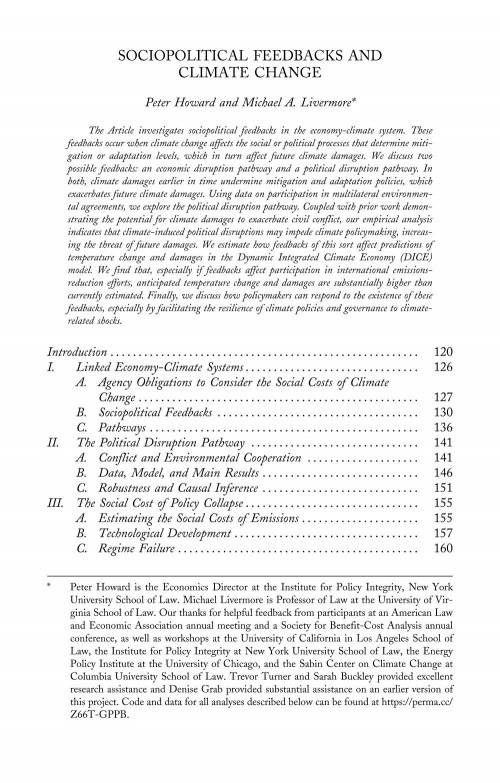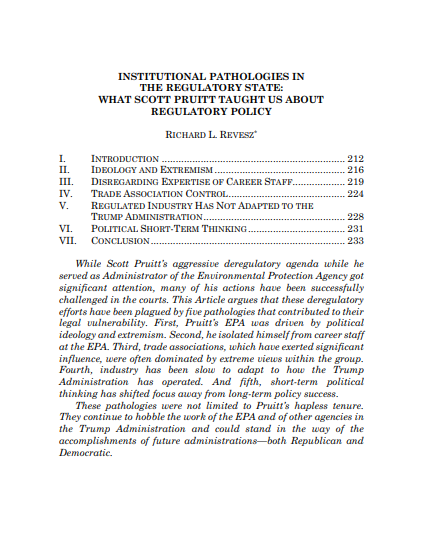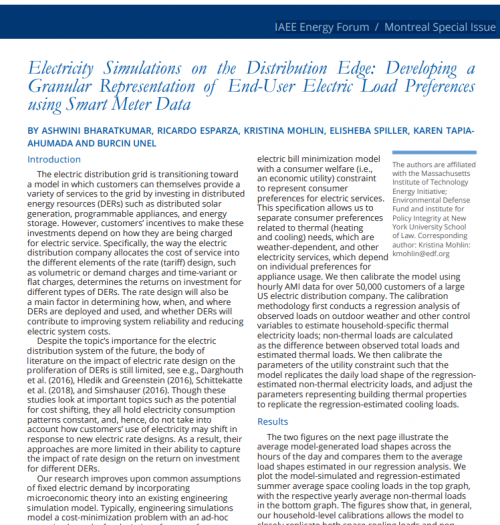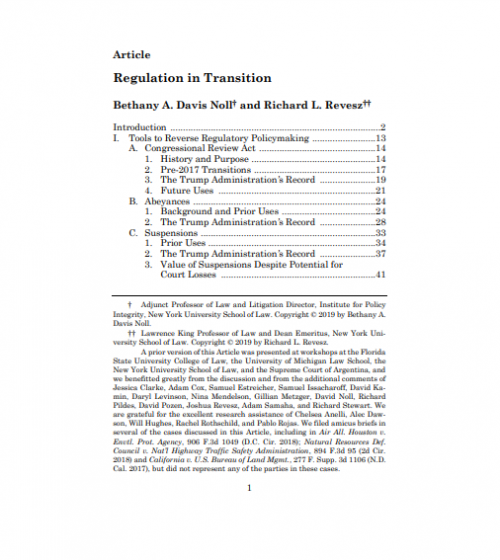-
State Nuisance Law and the Climate Change Challenge to Federalism
Two legal questions must be answered before the plaintiffs can proceed to the merits of their cases. First, can one bring state nuisance suits for damages caused by interstate pollution? Second, if such claims can be brought, are they nevertheless preempted by federal law? This Note will demonstrate that there is significant legal precedent for allowing state nuisance suits concerning transboundary pollution and no basis for removing the current cases to federal court. It will then argue that courts should not find federal law preempts nuisance lawsuits against these defendants
-
Institutional Pathologies in the Regulatory State
What Scott Pruitt Taught Us About Regulatory Policy
While Scott Pruitt’s aggressive deregulatory agenda while he served as Administrator of the Environmental Protection Agency got significant attention, many of his actions have been successfully challenged in the courts. This Article, published in the Journal of Land Use & Environmental Law, argues that these deregulatory efforts have been plagued by five pathologies that contributed to their legal vulnerability.
-
Electricity Simulations on the Distribution Edge
Developing a Granular Representation of End-User Electric Load Preferences using Smart Meter Data
The electric distribution grid is transitioning toward a model in which customers can themselves provide a variety of services to the grid by investing in distributed energy resources (DERs) such as distributed solar generation, programmable appliances, and energy storage. However, customers’ incentives to make these investments depend on how they are being charged for electric service. Despite the topic’s importance for the electric distribution system of the future, the body of literature on the impact of electric rate design on the proliferation of DERs is still limited. Our research improves upon common assumptions of fixed electric demand by incorporating microeconomic theory into an existing engineering simulation model.
-
Regulation in Transition
This article, published in the Minnesota Law Review, identifies a new trend in aggressive regulatory rollbacks and argues that it is likely to become an enduring feature of American politics. Rather than stick to the typical deregulatory playbook, President Trump has made aggressive use of other instruments that had not previously played a significant role. Through these strategies, the Trump administration was able to reach a far greater proportion of regulations finalized during Obama’s presidency than would have been possible under prior practices. In the current climate, aggressive rollback strategies will lead to an important reconceptualization of the Executive Branch, in which future one-term presidents are unlikely to see a significant portion of their regulatory output on important matters survive and the incentives that presidents face in fashioning their regulatory policies will be significantly different. The changing incentives will affect a broad set of decisions, from transition planning for an incoming administration to the timing of regulatory actions relative to a president’s reelection campaign.
-

Sociopolitical Feedbacks and Climate Change
This article, published in the Harvard Environmental Law Review, investigates sociopolitical feedbacks in the economy-climate system. These feedbacks occur when climate change affects the social or political processes that determine mitigation or adaptation levels, which in turn affect future climate damages. Two possible feedbacks are an economic disruption pathway and a political disruption pathway. In both, climate damages earlier in time undermine mitigation and adaptation policies, which exacerbates future climate damages. Using data on participation in multilateral environmental agreements, the article explores the political disruption pathway.
Viewing all publications in Academic Articles/Working Papers



